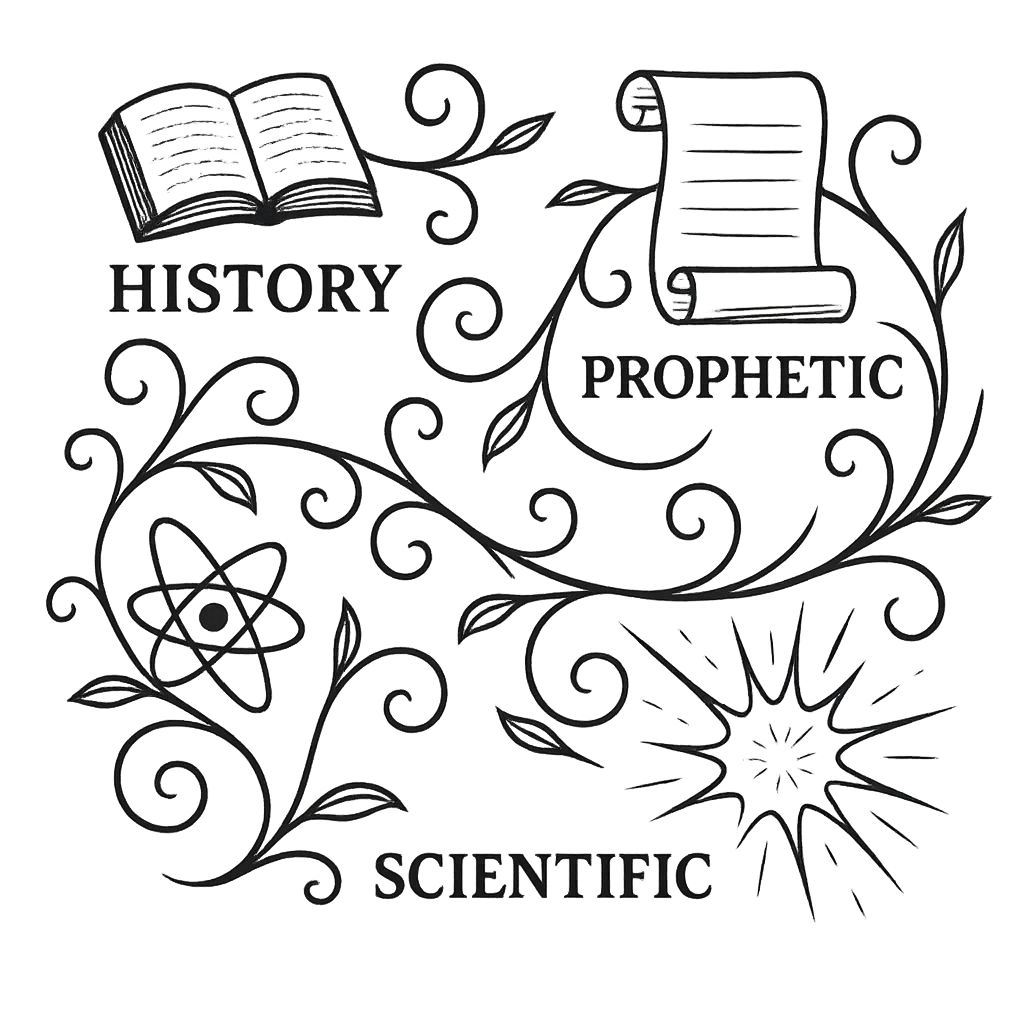When Albert Einstein developed his General Theory of Relativity in 1915, he thought he was unlocking a better way to describe how gravity works. What he didn’t expect was that his equations would also open the door to a revolutionary idea:
Time, space, and matter all began together.
This was not just a tweak in physics. It was a philosophical earthquake, one that shattered the idea of an eternal, self-existing universe and pointed to something that had never been seriously entertained in modern science: A begging.
🌀 What Is Einstein’s General Relativity?
Einstein’s theory showed that:
- Space and time are not fixed backgrounds.
- They are part of a dynamic fabric — what we call space-time.
- This fabric is bent by mass and energy, which we perceive as gravity.
Crucially, the theory mathematically links:
- Matter
- Energy
- Space
- Time
In other words, you can’t have one without the others. If space and matter exist, time exists. If they began, then time began too.
🧮 The Implications: A Finite Universe
When scientists applied Einstein’s equations to the universe as a whole, they realized something profound:
➡️ The universe cannot be static.
➡️ It must be either expanding or contracting.
➡️ And if it’s expanding now, then it must have once been infinitely small — a point of origin.
This led to what we now call the Big Bang theory — the idea that the universe (and time itself) had a definite starting point.
Einstein initially resisted this conclusion. He even introduced a “cosmological constant” into his equations to try to avoid the idea of a beginning. But he later admitted this was the biggest blunder of his life.
📚 The Borde-Guth-Vilenkin Theorem
In the 2000s, physicists Arvind Borde, Alan Guth, and Alexander Vilenkin proved a powerful theorem:
Any universe that is expanding on average over time cannot be eternal in the past.
Even multiverse models and inflationary theories must have a beginning. Vilenkin himself, a secular physicist, stated:
“All the evidence we have says that the universe had a beginning.”
✝️ Why This Matters Theologically
If time, space, matter, and energy all had a beginning, then whatever caused the universe must be:
- Timeless (outside of time),
- Spaceless (outside of space),
- Immaterial (not physical),
- Powerful (to cause the universe),
- And likely personal (to choose to create).
This is not a bad match for the God described in Genesis 1:1:
“In the beginning, God created the heavens and the earth.”
Einstein’s equations didn’t just reshape physics — they strengthened the case for a supernatural Creator.
🧪 Naturalistic Pushback
Some naturalists argue that we still don’t fully understand what happened “before” the Big Bang — perhaps quantum gravity or string theory will fill the gap.
But:
- These are speculative models, not established facts.
- Even if something predated the Big Bang, it would still require a cause beyond time, space, and matter.
- As Vilenkin’s theorem shows, even multiverse models can’t avoid a beginning.
✨ Conclusion: Time Itself Was Created
Einstein’s General Relativity transformed our understanding of the universe — and forced science to confront a startling truth:
Time itself is not eternal. It had a beginning.
And everything that begins requires a cause. That cause must exist outside of the natural order and possess unimaginable power.
Far from disproving God, modern physics has made His existence more plausible than ever.
As physicist John Lennox puts it:
“Even if the universe created itself, it still had to be able to do so — which raises the deeper question: why was it capable of creating itself in the first place?”
📚 References
- Albert Einstein – General Theory of Relativity (1915)
- Alexander Vilenkin – “Many Worlds in One” (2006)
- Borde, Guth, Vilenkin Theorem – Physical Review Letters, 2003
- Frank Turek & Norman Geisler – I Don’t Have Enough Faith to Be an Atheist
- John Lennox – God and Stephen Hawking: Whose Design Is It Anyway?

Leave a Reply